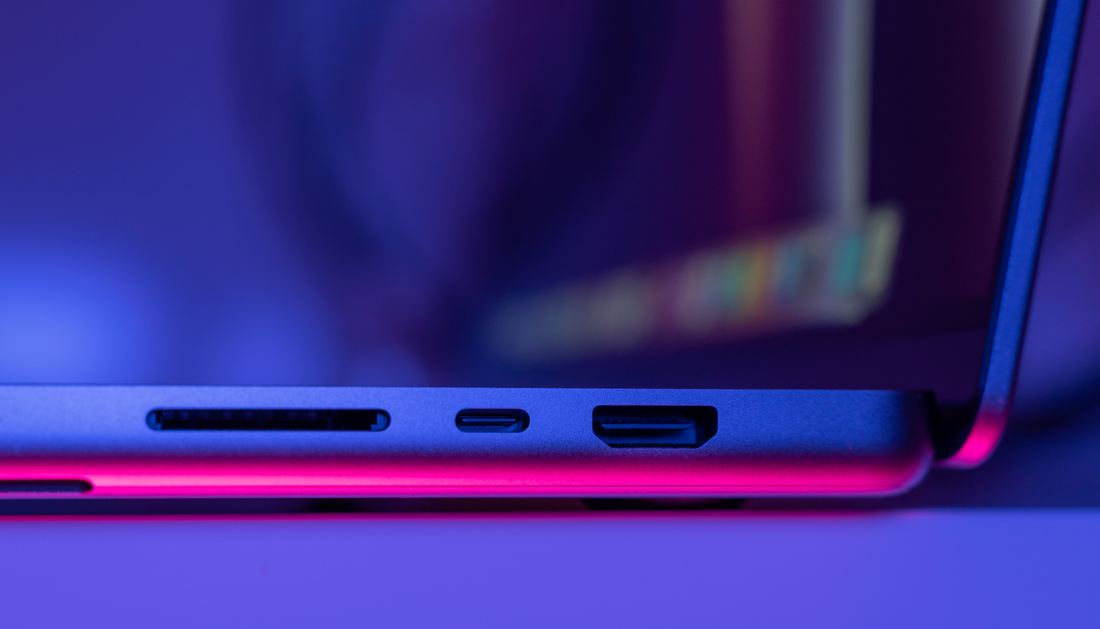
Do Slim and Lightweight Laptops Compromise on Performance?
In today's world, carrying a laptop around is key. So, many people want a slim laptop and a lightweight laptop. But, they worry if these laptops can really perform well like the bigger ones.
Do you have to give up on speed and power for a laptop that's easy to carry? Let's explore if the sleek look and light weight of these laptops affect their ability to handle tough tasks.

Understanding Slim and Lightweight Laptops
Ultra-light laptops and thin notebooks are more popular than ever. This is because people want devices that are easy to carry and look good. We'll explore what makes these laptops special and why they're so popular.
Definition of Slim and Lightweight Laptops
An ultra-light laptop is very light, weighing under three pounds. It's also very thin, less than an inch thick. These laptops are perfect for those who are always moving around. They use new materials and technology to stay slim and work well.
Key Characteristics of Slim and Lightweight Laptops
Ultra-light laptops have some key features:
- Build Quality: They're made with strong materials like aluminum or carbon fiber. This makes them durable and light.
- Technology: Even though they're thin, these laptops have fast processors and SSDs. This means they're quick and efficient.
- Battery Life: They also have long battery life. This is great for using them for hours without needing to charge.
Why They Are Popular
There are many reasons why thin notebooks are so popular:
- Increased Mobility: They're very light and small. This makes them easy to carry in bags or briefcases.
- Modern Aesthetic Appeal: Their sleek design is appealing to both professionals and students. It adds a stylish touch to any place.
- Remote Work Trend: With more people working from home, these laptops are perfect. They offer the flexibility to work from anywhere.

Knowing what makes ultra-light laptops special helps you choose the right one. They offer both style and function, fitting well into today's lifestyle.
Advantages of Slim and Lightweight Laptops
Choosing a slim and lightweight laptop has many benefits. They are perfect for today's fast-paced lifestyle. These laptops are great for both professionals and travelers.
Portability
One big plus is how easy they are to carry. They're perfect for those who travel a lot or work on the go. A lightweight laptop lets you stay productive anywhere.
Design and Style
These laptops look great too. Brands like Apple and Dell have made them stylish. A sleek laptop shows you're professional and innovative.
Battery Life

They also last a long time on battery. Their power management is top-notch. This means you can work for hours without needing to recharge.
Quick Startup and Resume
They start up fast thanks to solid-state drives (SSDs). This means you can get to work quickly. Whether you're in a meeting or on a deadline, they perform well.
Potential Performance Trade-offs in Slim Laptops
While slim and lightweight laptops are great for being portable and stylish, they have some downsides. These can affect how well you can use them, mainly for tough tasks.
Limited Ports and Connectivity
One big trade-off is the few ports these laptops have. They're thin, so they often lack USB ports, Ethernet, and sometimes HDMI. This means you'll need adapters and dongles, which can be a hassle.
Upgradability Concerns
Another issue is how easy it is to upgrade these laptops. Their small size means parts like RAM or storage are hard to change. This limits how long you can use the laptop and its ability to keep up with new needs.
Heat Management
Keeping cool is key for any laptop. But slim laptops have less room for cooling systems. This can cause them to overheat, leading to slower performance to avoid damage.
Performance in Resource-Intensive Tasks
For tasks like video editing, gaming, or multitasking, slim laptops might not be the best choice. Their cooling issues can slow down the CPU and GPU, making them less efficient than bigger laptops.
| Aspect | Slim and Lightweight Laptop | Bulky Laptop |
|---|---|---|
| Number of Ports | Limited | Ample |
| Upgradability | Low | High |
| Heat Management | Challenging | Efficient |
| Performance in Demanding Tasks | Moderate | High |
